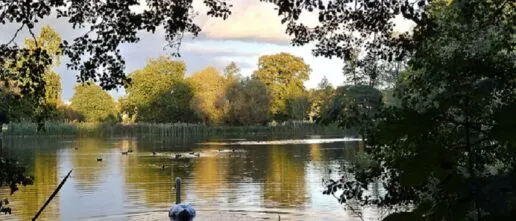I am a conservation scientist interested in how we can improve the uptake, effectiveness and efficiency of biodiversity conservation actions, to ensure they are delivering the conservation gains required to address the biodiversity crisis.
My research has focussed in two major areas to present:
- understanding how we can better engage, and improve the outcomes from private sector biodiversity management;
- how we can collect and better use evidence to improve the effectiveness and efficiency of actions to protect and restore biodiversity.
My current role looks at the actions needed across the Mitigation & Conservation Hierarchy to reach global biodiversity goals, with a particular focus on the approaches taken by businesses to measure, avoid, reduce and compensate for their impacts. The research forms part of the Leverhulme Centre for Nature Recovery as part of the Integration work package.
Related Projects

NATURE Impacts: National Assessment Tool for Understanding Relative Environmental Impacts
A forward-looking tool to track global progress, prioritise national action, and maximise impact for nature recovery

Pioneering Nature-Positive Pathways: Organisational Approaches for delivering Nature Recovery
Understanding the methods and actions required by large organisations to deliver effective and equitable biodiversity outcomes in line with achieving global nature recovery goals.
Related Outputs
The Nature Positive Journey for Business: A research agenda to enable private sector contributions to the global biodiversity framework.
As a group of researchers and consultants working at the interface between business and biodiversity, we propose a conceptual model through which private sector contributions to a Nature Positive future could be realised and use it to identify priority research questions.
The “nature-positive” journey for business: A conceptual research agenda to guide contributions to societal biodiversity goals
Biodiversity is rising rapidly on the global agenda, prompting businesses to adopt the “nature-positive” framing, expressing a commitment to combat biodiversity loss and contribute to global nature recovery goals. However, realizing these ambitions requires transformative changes in business operations, which will be challenging given the uncertainties surrounding possible strategies and pathways. A research-driven approach for […]
Navigating uncertainty in LCA-based approaches to biodiversity footprinting
The use of Life cycle assessment (LCA) methods is rapidly expanding as a means of estimating the biodiversity impacts of organisations across complex value chains. However, these methods have limitations and substantial uncertainties, which are rarely communicated in the results of LCAs. Drawing upon the ecological and LCA literature on uncertainty and two worked examples […]
Assessing costs and cost-effectiveness across the mitigation hierarchy: An example considering the reduction of bird mortality at power lines
There is an increasing expectation for companies to revise their activities to minimize impacts on biodiversity, as well as undertake compensatory and proactive actions to restore biodiversity.
Assessing the implications of a ‘Net Zero’ strategy for biodiversity
Climate change and biodiversity loss are closely linked crises. ‘Net Zero’ and ‘Nature Positive’ have emerged as frameworks for organisations to contribute towards societal climate and biodiversity goals.



